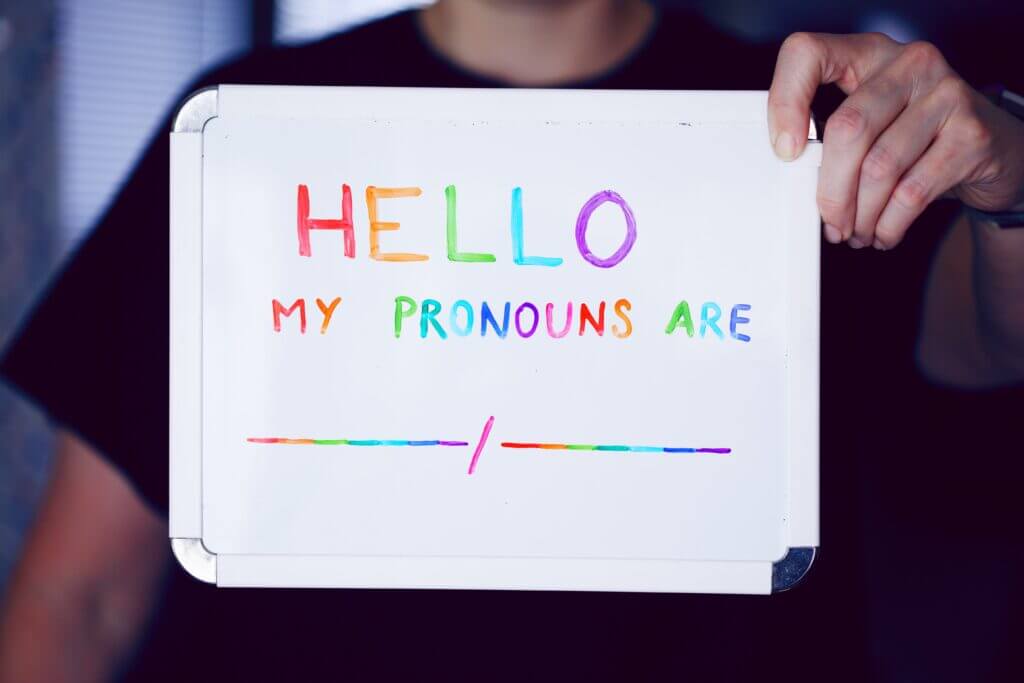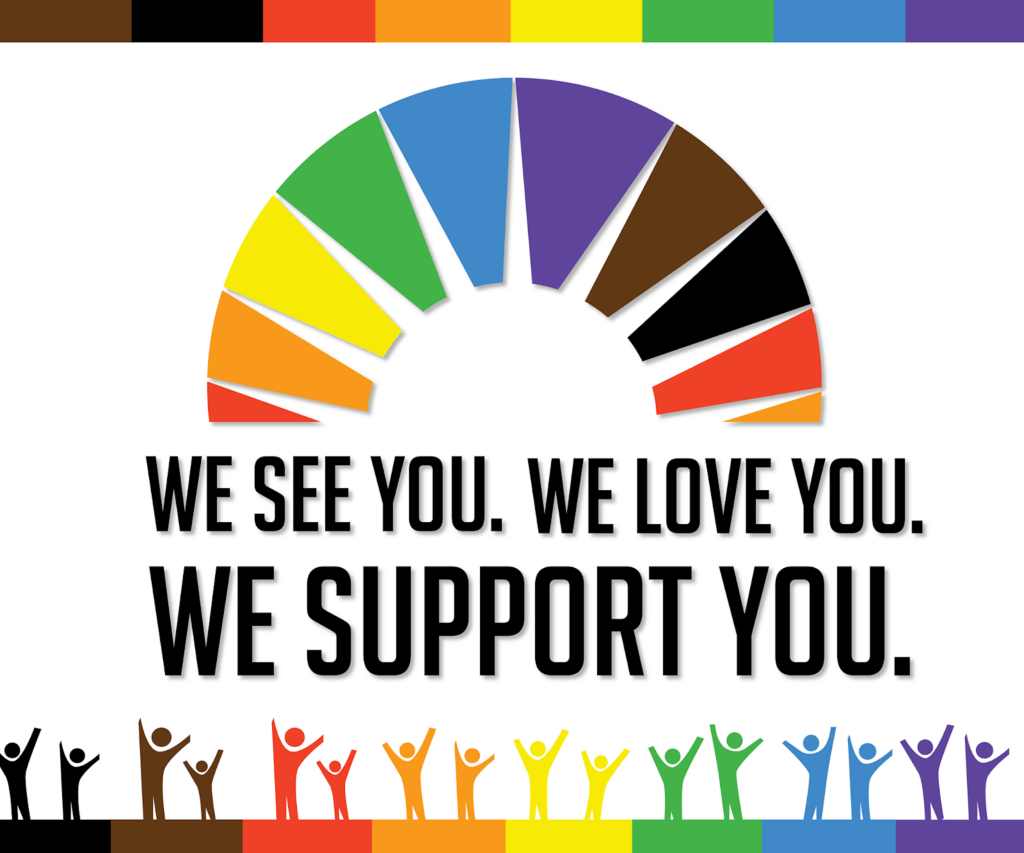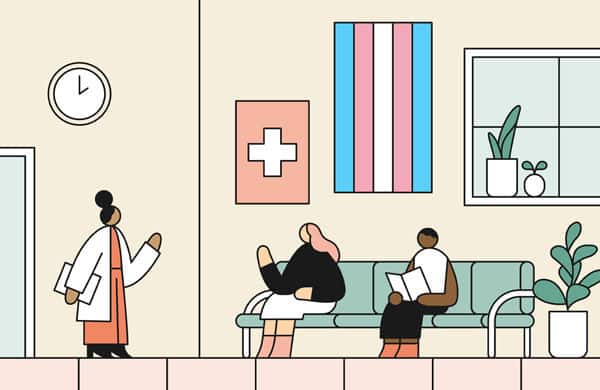What is gender-affirming care?
Gender-affirming care, as defined by the World Health Organization, encompasses a range of social, psychological, behavioral, and medical interventions “designed to support and affirm an individual’s gender identity” when it conflicts with the gender they were assigned at birth. The interventions help transgender people align various aspects of their lives — emotional, interpersonal, and biological — with their gender identity. As noted by the American Psychiatric Association (APA), that identity can run anywhere along a continuum that includes man, woman, a combination of those, neither of those, and fluid.
The interventions fall along a continuum as well, from counseling to changes in social expression to medications (such as hormone therapy). For children in particular, the timing of the interventions is based on several factors, including cognitive and physical development as well as parental consent. Surgery, including to reduce a person’s Adam’s Apple, or to align their chest or genitalia with their gender identity, is rarely provided to people under 18.
“The goal is not treatment, but to listen to the child and build understanding — to create an environment of safety in which emotions, questions, and concerns can be explored,” says Rafferty, lead author of a policy statement from the American Academy of
Pediatrics (AAP) on gender-affirming care.
Why do youths seek gender-affirming care?
Because such treatments for adolescents are relatively new, and access to them is limited, the pool of studies about their mental health effects is both small and recent. But according to half a dozen academics who have published studies on transition and suicidality in peer-reviewed journals, they all agree—gender-affirming medical care seems to lower that risk among trans youth. There’s no single study that proves it once and for all, no clincher that can summarily end every argument. Researchers say they can’t ethically pursue the kind of randomized control trial that’s the gold standard for most medical research: That would involve giving a placebo to a person in a potentially dangerous situation. Still, these studies tell a consistent story, one robust enough to convince their authors of the vital importance of these medical treatments.
“All the data that we have at this point suggests that they decrease suicidality,” says Jack Turban, an incoming assistant professor of child and adolescent psychiatry at the University of California, San Francisco.
Research in this area can be tricky because it deals with small numbers: Trans people are a minority of the population, and those who receive gender-affirming treatment as minors are an even tinier subset. Some of those minors may receive puberty blockers, others only get hormones, and some get both. Gathering enough participants to obtain statistically significant results takes a lot of time and money.
Studies limited to people who have attempted suicide would be smaller still. So researchers often focus on suicidality, a term that captures a wide range of behaviors, including thinking about ending one’s life. Critics have contended that this research doesn’t show evidence of a crisis—after all, thoughts are not actions. But ideation is a strong predictor of attempted suicide, and a “marker of really severe psychological distress,” Turban says. And, because it’s more common, it’s easier to study.
To do that, researchers have two primary tools at their disposal. The first is the longitudinal study, which tracks individuals over a period of time to evaluate the efficacy of a medical intervention. In the trans health care context, these studies typically start in the clinic: Patients who want to pursue a particular intervention will get recruited for the study, and then researchers will follow them over the course of their treatment.
One such study followed 47 adolescents in Missouri and found significant decreases in suicidality after three or more months of hormone treatment. A Finnish study that looked back at the medical charts of 52 adolescents also found significant reductions in suicidality after hormone treatment. And another longitudinal study reported less suicidal ideation in its subjects after treatment, although the number of people reporting any suicidal ideation at all was too small for the results to be statistically significant. Several more longitudinal studies have observed improvement in depression symptoms after treatment, although these did not evaluate suicidality directly.
Some children sense a difference between their assigned gender and their gender identity at an early age, says Deanna Adkins, MD, director of the Duke Child and Adolescent Gender Care Clinic in Durham, North Carolina. By the time an adolescent or teenager comes to the clinic to talk about gender-affirming therapy, “they’ve typically been thinking about it for a long time,” says Adkins, whose clinic is part of Duke University Hospital.
Those who seek gender-affirming care are often experiencing gender dysphoria, which the APA cites as “psychological distress” stemming from the incongruence between gender assignment and identity. Although many transgender people feel this distress without being diagnosed by a doctor, gender dysphoria is a defined clinical condition in the APA’s Diagnostic and Statistical Manual of Mental Disorders (DSM). The symptoms include “strong” desires to have the primary or secondary sex characteristics of another gender and to be treated as another gender, as well as “significant distress or impairment in social, occupational, or other important areas of functioning.”

Numerous studies have found that transgender youths, especially those experiencing gender dysphoria, are significantly more likely than other youths to suffer emotional distress and depression, to experience bullying and other forms of violence, and to harm themselves or attempt suicide. For example, a study led by the University of Minnesota of nearly 82,000 students in that state found that 61% of transgender youths reported suicidal ideation, more than three times the rate among cisgender youths.
In school, gender dysphoric youths often struggle to succeed socially and academically “due to pressure to dress in a way that’s associated with their sex assigned at birth or out of fear of being harassed or teased,” the Minnesota-based Mayo Clinic reports. When it comes to getting help, Mayo notes, “Accessing health services and mental health services can be difficult due to fear of stigma and a lack of experienced care providers.”
What types of emotional, social, and psychological care are available?
The fundamental thing that transgender people seek from health providers “is someone who’s culturally and medically competent to care for them in an environment where they feel safe,” says Imborek, whose LGBTQ Clinic is part of University of Iowa Hospitals and Clinics. “The primary care I provide is a gender-affirming environment.”
That environment allows for frank discussions about the patient’s gender identity and related stress, sexual activity, and potential transition toward a different gender identity. A young person’s stages of physical and psychological development are major factors in determining which interventions (if any) are most appropriate and when.
Most of the care — especially the more intensive care — is provided to youths during or after puberty. The World Professional Association for Transgender Health (WPATH) Standards of Care observes that “gender dysphoria during childhood does not inevitably continue into adulthood,” and “the persistence of gender dysphoria into adulthood appears to be much higher for adolescents.”
The transition supports might start with cosmetic changes and move toward more intensive interventions, drawing on an array of physicians, mental health counselors, and non-medical caregivers. That care includes:
- Counseling about coming out as transgender to family, peers, and others (such as teachers).
- Resources to assist with changing outward appearances and gender presentation. For example, IU Health Care’s LGBTQ Clinic refers interested patients to the hair salon at the university hospital for hair and makeup lessons, Imborek says.
- Speech therapy to help match vocal characteristics (such as pitch and phrasing patterns) with gender identity.
- Hair removal through electrolysis, laser treatment, or waxing.
- Breast binding or padding, genital tucking, and padding of the hips or buttocks.
Specialists who provide this care stress that these interventions are reversible. Young people sometimes stop a process to reassess their identity or because they’ve transitioned to a point that feels right.
What hormone-related therapies are available?
Puberty blockers: Transgender youths who have not started or completed puberty can receive “puberty blocker” medication, which suppresses the release of sex hormones, including testosterone and estrogen. The Mayo Clinic explains that for those identified as male at birth, “the blockers decrease the growth of facial and body hair, prevent voice deepening, and limit the growth of genitalia.” For those identified as female at birth, “the treatment limits or stops breast development and stops menstruation.”
One purpose of puberty blockers is to allow a young person time to fully determine their gender identity and how far they wish to transition before the onset of permanent sex characteristics.
“They’re usually used in early puberty to slow things down,” Rafferty says. “They [the youths] haven’t had much of an option to explore who they are. They’re coming in and saying, ‘Something doesn’t feel right’” about their assigned gender.
If puberty blockers are stopped during puberty, hormone development resumes until the end of that child’s puberty, Rafferty says. Blockers are typically not initiated after a child finishes puberty, he explains, because they are not necessary and some of the blocked hormones are necessary for healthy adult development (such as estrogen for bone strength).
Hormone therapy: Older youths (usually in mid-adolescence) and adults can receive hormone therapy to increase their levels of estrogen or testosterone so that they develop sex characteristics more closely aligned with their gender identity. These include more hair growth and increased muscle mass for those transitioning to a more masculine presentation, and breast development and testicular atrophy for those transitioning to a more feminine presentation.
The changes occur slowly, and Rafferty notes that it’s not unusual for patients to stop hormone therapy before the secondary sex characteristics fully develop, deciding that they have biologically transitioned as far as they wish. He adds that depending on when the treatments stop, some of the effects partially or completely reverse, such as broadening of the shoulders for those taking male hormones and early breast development for those taking female hormones.

What is the impact of the therapies?
Studies have linked gender-affirming care at various levels to a decrease in depression and harmful behaviors. For example, a study from the Stanford University School of Medicine in California, published in January, concluded that those who began hormone therapy in adolescence experienced less suicidal ideation, fewer mental health disorders, and less substance abuse than those who began such therapy later.
To experts, an expansive approach is exactly what is needed—not simply to prevent deaths, but also to encourage trans youth to lead happy, fulfilling lives. Achieving that goal means offering them access to appropriate mental health care, ensuring that they know they are supported, and publicly and emphatically speaking out against anti-trans hate. “We should not be striving, as a health care community, just to reduce suicidality,” Ducar says. “Keeping someone safe is the bare minimum.”

